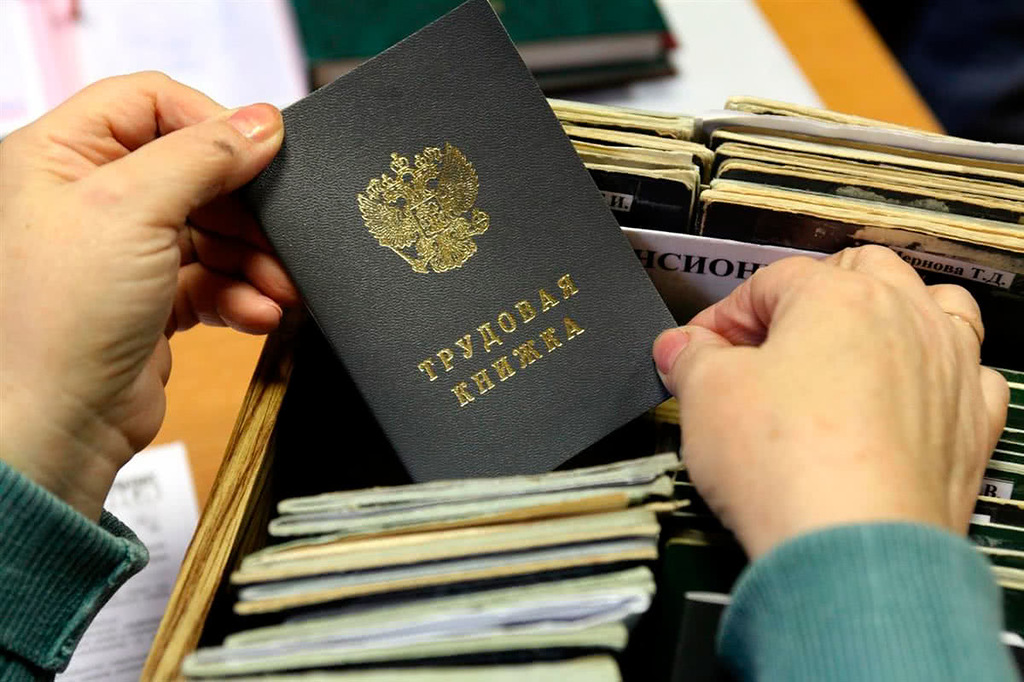Mortgage co-borrower
The purchase of real estate on the terms of a mortgage agreement implies that the potential borrower has a sufficiently high stable income. Over the years, the debtor will have to pay regular payments, which can "eat up" the lion's share of the personal budget. If a person applying for credit money does not have a high salary or other regular income, he can resort to the help of a third party in order to obtain the required amount on a loan with his help.
The participation of a co-borrower will help increase the amount of the mortgage loan.
Obtaining the status of a co-borrower on a mortgage automatically imposes joint and several liability on this person under the loan agreement. This means that, along with the main debtor, the party to the agreement will receive a certain range of obligations to ensure the return of bank money.
What are the responsibilities of a mortgage co-borrower?
The main obligation of the borrower's credit partner is to ensure, together with the borrower, regular payment of mortgage payments and, ultimately, to participate in the full repayment of the bank loan. The financial claims of the bank apply equally to all participants in the mortgage agreement - both to the main debtor and to persons providing loan repayment.
All rights and obligations of the credit partner are specified in the mortgage agreement.
In the event that the recipient of the mortgage is unable to make payments on the loan, the financial institution may oblige the partner to pay off the loan in full.
Attention: if the main debtor and his partners under the contract do not have the financial ability to make regular payments on the loan, the mortgage property can be sold in agreement with a banking institution.

The degree of participation of the co-borrower in current payments must be declared in the relevant paragraphs of the mortgage agreement. The joint and several liability of a third party may look like this:
- responsibility for paying the mortgage debt comes at the time of signing the contract, and all payments must be made by both the main borrower and his partner in equal shares;
- a third party enters into financial relations with the bank at the moment when the main debtor loses the ability to repay the mortgage debt.
After the full repayment of the bank loan, the right to the acquired property passes both to the recipient of the mortgage and to all persons having the status of a co-borrower. Even if third parties in writing waive claims from their share in mortgage housing under the agreement, this does not mean that they will be released from obligations to the bank and payment of loan payments.
The co-borrower has equal rights with the main debtor to mortgage housing, unless otherwise provided by the loan agreement.
When is the participation of a co-borrower in a mortgage necessary?
Financial institutions, when considering a mortgage application, have a positive attitude towards the participation of loan assistants - this is considered as an additional guarantee of timely repayment of the loan. The involvement of third parties in a mortgage transaction is justified if the main borrower does not have sufficient income to obtain a loan.

Individuals can become mortgage partners both voluntarily and without fail. The number of participants in the agreement is determined by the bank - in most cases there should be no more than 3-5 people.
The allowed number of credit partners is set by the bank.
If a person applying for a mortgage loan is officially married, then his spouse automatically becomes a party to the loan agreement and receives the status of a co-borrower. Voluntary co-borrowers can be both close relatives of the applicant for a mortgage, and outsiders.

When considering an application for a loan, the bank takes into account the total income of all parties to the agreement, and the package of documents for the co-borrower practically does not differ from the requirements for the main recipient of the mortgage.
Husband and wife act as equivalent mortgage borrowers if the marriage contract is not concluded.
Remember: one of the spouses may not appear in the mortgage agreement as a co-borrower if a prenuptial agreement was previously signed that provides for such an opportunity.
What is the difference between a guarantor and a co-borrower
A guarantee is another form of participation in a loan agreement by a third party. The guarantor is involved as a guarantor of the timely repayment of a bank loan. Its role is to secure the repayment of the loan and related costs (such as legal fees incurred by the bank) in the event that the financial institution is unable to recover the loan and interest from the principal borrower. The guarantee is formalized by the relevant agreement attached to the loan agreement.

The guarantor is liable for the payment of the mortgage only by a court decision.
For a banking organization, it does not matter who exactly will repay the loan - the main debtor, credit partner or guarantor. However, the sequence of presentation of financial claims plays a role: first of all, the obligation to pay the mortgage rests with the borrower and other persons involved in the transaction. The guarantor "enters the case", as a rule, in the last turn, when the claim for the recovery of the loan is considered by the courts.
Requirements for a co-borrower
The list of requirements for the co-borrower is determined by the financial institution. The main parameters of the credit partner are as follows:
- the person is a citizen of Russia and has reached the age of majority;
- the uninterrupted work experience of the applicant is 4-6 months or more;
- absence of negative facts in the credit history;
- The co-borrower's income allows you to make monthly mortgage payments.

Some banks may limit the circle of co-borrowers - only the closest relatives who meet the listed criteria can share the burden of the mortgage. In addition to organizational requirements, the bank allows the participation of a third party on a loan subject to the following conditions:
- the credit partner expresses its readiness to be jointly and severally liable for the mortgage;
- the co-borrower voluntarily assumes responsibility for the full repayment of the loan in the event of the financial insolvency of the main borrower.
The Bank allows the issuance of a mortgage loan to a client who does not have a regular income if there are co-borrowers whose solvency is confirmed by relevant certificates and does not raise doubts with the financial institution.
Risks when participating in a mortgage as a co-borrower
The status of a co-borrower under a mortgage agreement implies the existence of joint and several liability for repayment of the loan. Since a real estate loan is designed for a long period, it is necessary to take into account the degree of risk from participating in such an event.
Non-payment of the mortgage by the main debtor and co-borrower entails the seizure of the mortgaged property.
A mortgage loan is issued against the security of the acquired property.

However, situations are possible when the value of collateral may not cover the accumulated debt to the bank. In this case, all participants in the mortgage agreement are liable for the debt to the bank with their property. By decision of the court, arrest may be imposed on the movable and immovable property of co-borrowers, on their accounts in banking organizations.
If there is a significant monthly income, a third party can become a co-borrower for several mortgage loans - this right is not regulated in any way by civil law or regulatory documents of the Central Bank.

However, it should be remembered that participation in credit transactions as a full-fledged partner is necessarily recorded in the BCI. All delays in the payment of a mortgage, refusal to repay a loan or judicial debt collection will be entered into the credit history of all participants in the mortgage - including the co-borrower.
When recovering the amount of the outstanding mortgage through the judicial authorities, the co-borrower will not only be obliged to repay the loan debt for a long time, but will also be deprived of the right to travel outside Russia. And if a co-borrower on a mortgage decides to take out a loan for his own needs, the costs of securing a “foreign” contract will be deducted from his total income.
Is it possible to terminate participation in a mortgage agreement?
The duration of payments on a mortgage loan can stretch for several decades, during which time any changes can occur in the life of co-borrowers - from divorce of spouses to loss of regular income. Withdrawal of such a subject from the mortgage agreement can be carried out in two ways:
- applying to the bank to replace a co-borrower or provide other mortgage security - attracting an additional guarantor, pledge of assets. The withdrawal of the original credit partner is decided by the financial institution on a case-by-case basis;
- filing a claim with the court - if the borrower does not agree with the conclusion of the co-borrower, and the latter can document his active participation in the repayment of the mortgage.
The exclusion of a co-borrower from the current mortgage agreement is the prerogative of the bank. Only a financial institution has the right to resolve the issue of replacing a credit partner.
In agreement with the bank, it is possible to replace the co-borrower for good reasons.
A unilateral refusal of a co-borrower to participate in a mortgage agreement is not possible. If a participant in a credit transaction independently terminates payments on a loan, the bank has the right to apply penalties or refer the debt collection case to court.
Conclusion of a co-borrower upon dissolution of marriage

The breakup of a married couple that has obligations under a mortgage loan entails the re-registration of the loan agreement and the withdrawal of one of the spouses from the number of persons involved in the agreement. The algorithm of actions in this case is as follows:
- spouses officially dissolve the marriage and receive the relevant certificates from the registry office;
- provision of a divorce certificate and a court decision / notary agreement on the division of joint property;
- obtaining bank approval for the withdrawal of a co-borrower and re-registration of a mortgage for one spouse.
To sign an additional agreement or renegotiate a mortgage agreement, the bank reissues the mortgage and insurance documents to the main borrower, as to the title borrower.
A package of documents for a co-borrower on a mortgage
Unlike the guarantor, the partner of the main borrower on a mortgage loan is obliged to provide a banking organization with a full package of documents that does not differ from the set of papers of the borrower.

A specific list of necessary certificates and confirmations is formed by each financial institution, depending on the credit policy pursued. However, there is a core set of documents that includes:
- personal documents of the co-borrower, TIN and SNILS;
- passports and birth certificates of family members of a third party;
- confirmation of a permanent place of work (work book) and a certificate of available regular income.
Additionally, tax returns for previous years (if you have your own business), certificates of the presence of expensive assets (car, real estate, securities) and extracts from personal accounts in banking organizations may be required.
Attention: the mortgage partner, along with the main debtor, is obliged to conclude insurance contracts in accordance with the requirements of the bank (insurance of collateral, health and life of an individual).
When deciding on voluntary participation in a mortgage agreement as a co-borrower, it is necessary to be aware that for many years the credit partner will be liable for the obligations of the main debtor in terms of repaying a loan for real estate. In order to protect yourself from adverse consequences as much as possible, it is necessary to fix in the contract all the nuances of the return of money paid by a third party, the procedure for making payments and allocating a share in housing purchased under a mortgage.




